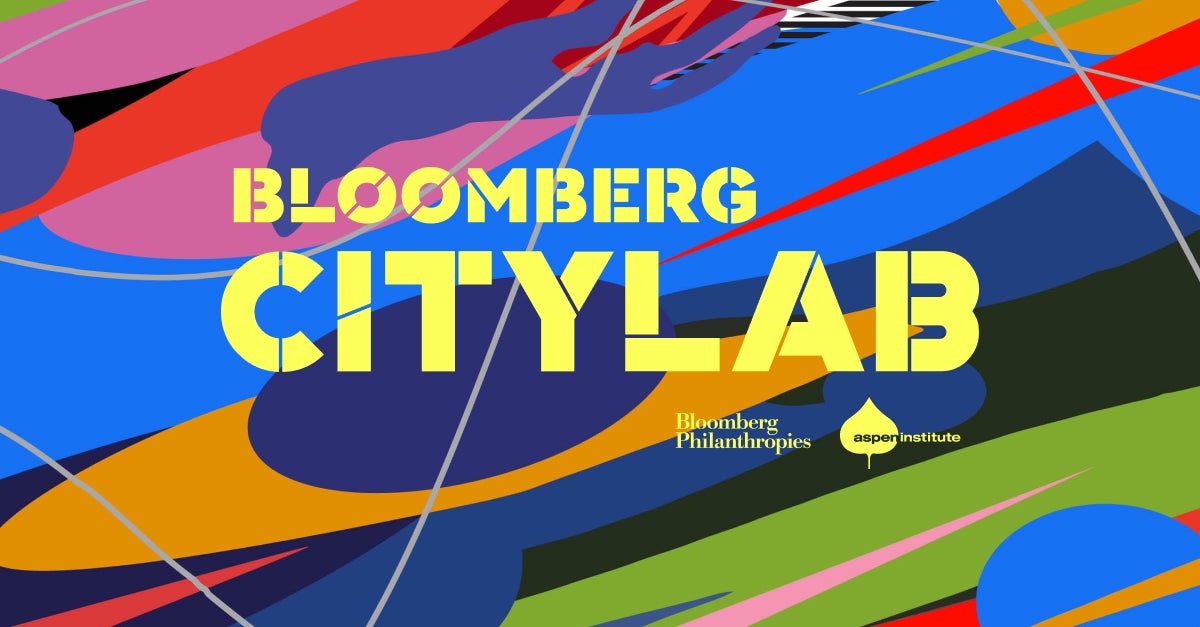
Aspen Institute President and CEO Walter Isaacson moderates a conversation with London Mayor Boris Johnson and former New York City Mayor Michael Bloomberg at the 2015 CityLab conference in London, UK. Watch the full discussion here.
*This blog post has been updated from its original version.
Western governments seem gripped by intractable partisanship in 2015. Yet, at the 2015 CityLab conference, an annual event hosted by the Aspen Institute, The Atlantic, and Bloomberg Philanthropies, political leadership and government action was on center stage.
Aspen Institute President and CEO Walter Isaacson led a conversation with London Mayor Boris Johnson and former New York City Mayor Michael Bloomberg exploring why cities are hubs for innovation. The discussion itself demonstrated that leadership in politics is not a lost art, at least not for mayors.
Indeed, both men showed that their political affiliations need not pre-determine their policies, as so frequently happens as the national level. Johnson, a member of the conservative party in the UK, vociferously defended the unionized London “black cabs,” which face stiff competition from the ride-sharing app Uber. Johnson argued that an increase in Uber vehicles meant more air pollution, and that if government regulates an industry, it must also protect it.
“Since the days of Oliver Cromwell, the black hackney carriage trade has been regulated and governed by the state,” Johnson said. “Now if a state is going to do that to these people, then they’ve got a duty, I think, to try and manage the transition.”
Bloomberg, known for his efforts to ban sugary drinks of a certain size and a national campaign to regulate gun ownership, surprisingly took the opposite view.
“There are lots of these companies that overnight are going out of business because there’s a new technology,” Bloomberg said. “And the question is, are you there to work for the consumer… It’s better to let the market do it, I would argue, than government.”
The mayors didn’t always disagree; both stated that making their cities more livable has been a crucial component. Johnson explained how maintaining a “dynamic and cool” environment in London has made it more appealing for young innovators, and Bloomberg cited the need to keep New York “family friendly” so employers will want to move to and stay in the city.
The policies Bloomberg and Johnson pursue have sometimes gone against the grain of their own party identities, but neither would be bound by the dogma of political affiliation. Mayors make great leaders because, as Bloomberg said, “You can see what mayors do.”
True leadership in politics is still possible, at least for mayors, but it is a matter of action, not partisan principles. “The question is, do they have any experience in doing things, in running things and attracting people, keeping them together, getting them to work, measuring things, and if they don’t work, changing things?” Bloomberg asked. “That’s what executives do.”

